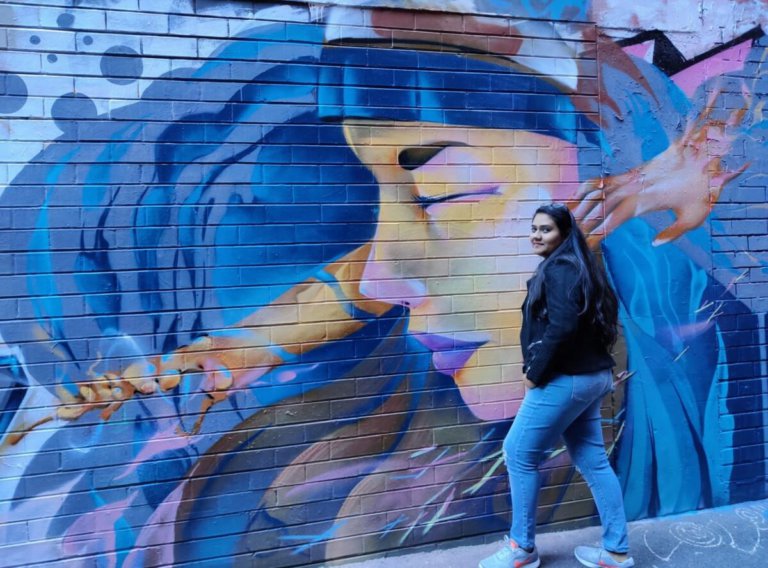
Indian nationals in Australian universities Charu Rangwani and Muskan Rajpal have found themselves between the devil and the deep blue sea.
Australian Prime Minister Scott Morrison recently announced on April 3 that it was time for international students to “return to their home countries” if they can’t support themselves in the country.
But this is one advice that international students cannot heed if their home countries are in lockdown.
PM has taken correct decision to extend lockdown. Today, India’s position is better than many developed countries because we started lockdown early. If it is stopped now, all gains would be lost. To consolidate, it is imp to extend it
— Arvind Kejriwal (@ArvindKejriwal) April 11, 2020
India’s 21-day lockdown, which started at midnight on March 25 and has been described as one of the harshest globally, has recently been extended until May 3. Borders are closed, with “all incoming passenger traffic” by air, land and sea barred since March 18. This was followed by a suspension of all international flights going into and out of India, which as at the time of writing, remain in place.
For Muskan, an undergraduate student at Deakin University, the lifting of travel restrictions to India cannot come sooner.
“I want to go back because my parents are really worried,” she said, adding that being home also meant having emotional support. But instead, she’s still thousands of miles away.
As classes and exams have shifted online, coupled with limited working hours available for her part-time work, Muskan doesn’t see a point in staying in the country for now.
Charu, who is pursuing a Master of International Tourism and Hospitality Management at Griffith University in Melbourne, accepts Morrisons’ stance, but opined that it is incumbent on the Indian government to support its students abroad.
“We need support from [the] country we’re in. I wouldn’t say [that] Scott was wrong in his statement — he’s absolutely right — he needs to support his citizens and residents first, but we need some emotional stability,” she said.
Since COVID-19 started making headlines in December, the pandemic has opened the pandora’s box, unleashing a wave of anxiety and uncertainty for many. But the crisis has been particularly challenging for international students like Muskan and Charu who are stuck abroad.
Parents of international students have also been negatively affected by COVID-19, throwing students who depend on their parents financially in turmoil, something both students can relate to.
Australia’s economic gains from international students
 Since his previous announcement, Morrison has assured Indian Prime Minister Narendra Modi about the well-being of the Indian community, including students in Australia.data from the Australian Government’s Department of Education, Skills and Employment notes that there was an 11 percent increase in international student enrolment from 2018 in higher education.
Since his previous announcement, Morrison has assured Indian Prime Minister Narendra Modi about the well-being of the Indian community, including students in Australia.data from the Australian Government’s Department of Education, Skills and Employment notes that there was an 11 percent increase in international student enrolment from 2018 in higher education.
As of February this year, there are over half a million (593,718) international students, with Chinese citizens making up the biggest group of international students, followed by Indians.
In total, international students contribute over AU$30 billion to Australia’s economy.
Critics argue that Australia has benefited billions from international students, but the country has been quick to turn its back on students at a time when help is needed the most.
In a Twitter thread, NSW senator Mehreen Faruqi said:
“The PM just invited people from overseas stuck here ‘who are nurses, doctors and others with critical skills’ to sign up to help Australia deal with #Covid19. He’s happy to take their help, but won’t help international students in need. Disgusting.”
International students rue lack of timely government action
Following Morrisons’ surprise announcement, some respite has been trickling in for international students. Melbourne City Council has called for increased support for international students, including the establishment of a hardship fund to support students.
This was followed by an announcement by acting immigration minister Alan Tudge to allow international students who have been in the country longer than a year and who find themselves in financial difficulty due to the pandemic to access their Australian superannuation — also known as “super” — a mandatory retirement saving account.
Despite these efforts, these are still trying times for international students in the country.

Charu at Surfers Paradise, Gold Coast. Australia is known for its stunning beaches, which Charu misses under the current stay at home order. Source: Charu Rangwani
At the forefront of Charu’s mind are financial concerns.
The 23-year-old used to work two part-time restaurant jobs, but her shifts have been affected by the outbreak. Despite taking a student loan, she also depends on her parents — whose work were not spared from the effects of the pandemic — for financial support.
“[The Indian government should] at least let us go back home and return once things are normal,” she said, adding that they could also make arrangements for accommodation for Indian students who are stuck abroad.

Charu (second from left) with her friends during a Brazilian Carnaval in Brisbane. Source: Charu Rangwani
She is also worried about her future employment opportunities, noting that businesses, especially the hospitality sector, will need time to recuperate its losses following the outbreak. A lack of practical experience in her line of work will also prove to be a handicap, she said, and worries that it will affect her employability after graduation.
Also echoing Charu is Muskan, who notes that she’s not getting regular shifts at her part-time jobs at McDonald’s and at a primary school, as things are slowing down.
The 19-year-old psychology student used to work 20-hour weeks during the semester, but now works just over seven hours per week.
“We’re away from our families so they can’t help us,” said the Indian national.

Muskan is eager to go home and be with her family, but the current lockdown has made it impossible. Source: Muskan Rajpal
Muskan, who typically works night shifts at McDonald’s, said business has been slow in the eatery while she also notices international students who do Uber Eats deliveries killing time by sleeping outside the restaurant with their bikes while waiting for orders to trickle in.
Australian universities step up to help students
Amidst the backdrop of what appears to be the Australian governments’ hostility, both international students sang praises for their respective universities for their support towards students.
According to Muskan, there has been regular communication from the university on accessing university resources and assignment deadlines have been extended for students, without having to produce a doctor’s note.

Muskan before a stay at home order was in place. Source: Muskan Rajpal
The transition to online learning was not difficult as Deakin “has a really good system,” with students having access to online lectures and recordings, while the university has also extended its census date, which she said many students have found useful.
Last week, Deakin Univerity also announced AU$25 million in additional targeted support for international students experiencing hardship as a result of COVID-19.
At Griffith University, Charu said “we have amazing help from the university,” adding that Griffith has provided loans for students without laptops to purchase them to help them continue their studies at home. There is also free food for students to collect on campus while the university also offers online courses for students to take and stay productive.
Despite these challenging times, Charu’s message to other international students is to stay calm and patient.
A few of her friends had panicked and were eager to go home, but she encourages students not to make hasty decisions. Universities have been coming forward to help international students, and she is confident more will follow suit.
Not being able to go home is a difficult situation for international students, but Muskan advises others to manage their expenses wisely and to stay strong. “It’s a time when we have to support each other,” she said.
Liked this? Then you’ll love…
Why 20,000 international nursing students are staying back in Australia
Jobless & stranded, international students in Australia ask for government help: ‘We are humans too’







